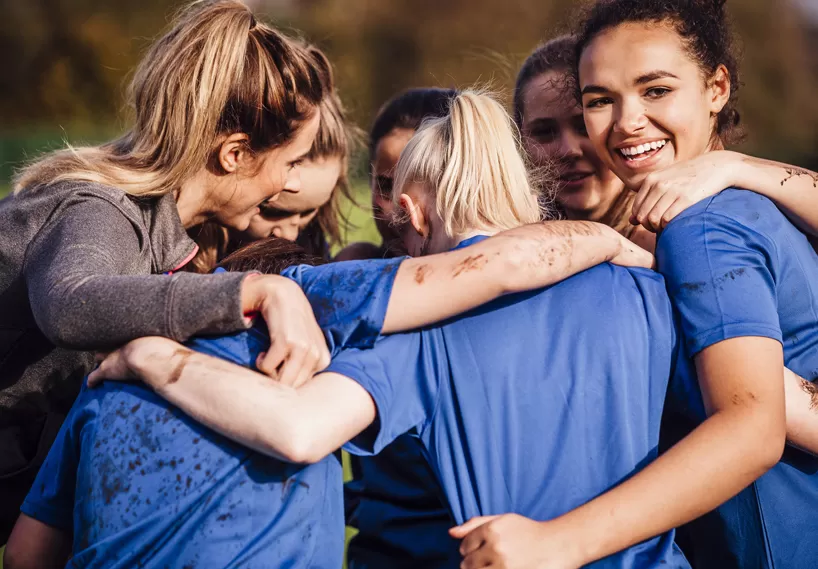Play Hard, Laugh Harder - Making Sports Fun and Competitive
Sports coaching often walks a fine line between fostering competitiveness and ensuring that athletes and participants have fun. Striking the right balance between these two elements is crucial not only for skill development but also for the participants overall well-being and enjoyment of the sport. As a coach, understanding how to blend these seemingly opposing forces can make all the difference in a team's success and the personal growth of athletes.
Competitiveness is an integral aspect of sports. It drives athletes to push past their limits, strive for excellence and achieve their personal best. A competitive spirit can foster discipline, resilience and a strong work ethic—qualities that are beneficial both on and off the field, court or track.
A competitive mindset encourages athletes to improve their skills and perform at their highest level. It enhances performance. Facing challenges and striving to win helps athletes develop resilience and the ability to handle pressure so it builds mental fortitude. Competitiveness often leads to setting and achieving goals, which can be incredibly motivating and fulfilling.
While competitiveness is vital, it's equally important to ensure that sports remain fun. Enjoyment is what initially attracts many participants to sports and keeps them coming back. When athletes have fun, they are more likely to stay engaged, motivated, and enthusiastic about their sport.
Athletes who enjoy their sport are more likely to continue participating over the long term and that’s great for all sorts of health and wellbeing reasons. Fun helps prevent burnout, keeping athletes mentally fresh and excited about their training and competitions. Enjoyment also creates a positive team environment, encouraging camaraderie and teamwork.
Strategies for High scores and high Fives
1. Set Balanced Goals
Encourage athletes to set both performance-related goals (e.g. improving their personal best time) and enjoyment-related goals (e.g. having fun at practice or trying a new skill). This approach ensures that while they strive for excellence, they also value the joy of playing the sport.
2. Emphasize Skill Development
Focus on developing skills through fun drills and games. This helps athletes improve their abilities while enjoying the process. For instance, incorporating friendly competitions during practice can make skill-building more engaging.
3. Create a Positive Environment
Foster an environment where effort and improvement are celebrated, not just winning. Recognise and reward hard work, sportsmanship, and positive attitudes. This can be done through praise, awards or team-building activities.
4. Promote Healthy Competition
Encourage athletes to view competition as a way to challenge themselves and improve, rather than just a means to defeat others. Teach them to appreciate their opponents as partners in growth, helping them to push their limits.
5. Listen to Your Athletes
Regularly seek feedback from your athletes about what they enjoy and what stresses them out. Use this information to adjust your coaching methods, ensuring that practices and competitions are both challenging and enjoyable.
6. Balance Practice with Play
Incorporate unstructured playtime into practice sessions. Allow athletes to explore their creativity, try new things and simply enjoy the sport without the pressure of structured drills or competition.
Balancing competitiveness with fun in sports coaching is immensely beneficial for the holistic development of athletes and participants. We all like to win but ultimately, the goal of sports is cultivate a passion for the sport, build character and develop skills. These are the things that athletes will carry with them long after their competitive days are over.
And for all those Sports Coaches who have inspired, motivated, challenged, encouraged and occasionally disciplined us to be the best we can be……. Thank you!


